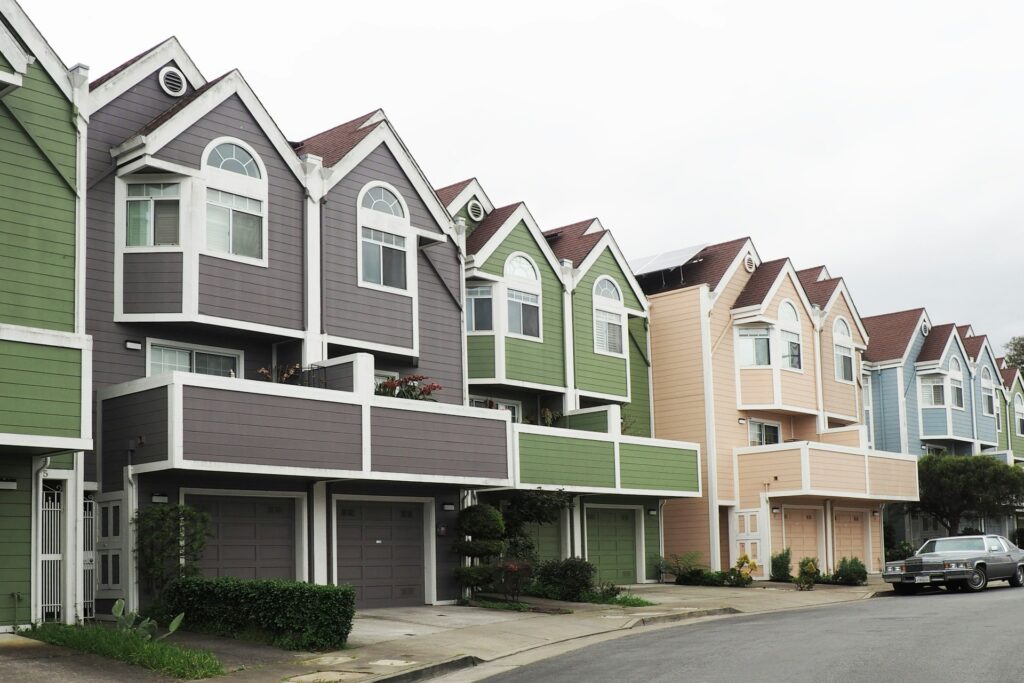
We are reader-supported. When you buy through links on our site, we may earn an affiliate commission.
Choosing where to move is undoubtedly one of the biggest decisions you’ll make in life. It could drastically affect things like your overall outlook and access to medical, education and leisure facilities. You’ll weigh the pros and cons of certain areas on your short list before reaching the ultimate conclusion. But did you find the true cost of commuting?
More than likely, you or someone in the household will go back and forth to work at least every weekday. That means you might want to measure all aspects of this expense well before you take the plunge. From the monetary to the mental, here’s what you’re really sacrificing with a long commute.
What is the Average Miles Commute to Work?
Data from the U.S. Census Bureau indicates the average commute to work is 26.1 miles. This means commuting takes up more than 100 hours in the average American’s life each year.
Of course, this largely depends on your location. In the New York /Newark /Jersey City region, commuters travel closer to 40 miles on average each day, while drivers in Fargo navigate less than 20 miles on average. And that’s not even accounting for traffic.
Sure, you can do things to make a long driving time a bit more pleasant — such as listening to music, podcasts or foreign language learning materials — but that’s still a lot of time on the road.
Are you planning on moving? It pays to think carefully about how far you’d live from work and how you can reduce the expenses of driving each day. The true cost of commuting includes opportunity cost, so it’s important to allocate your time wisely.
Now, let’s take a look at the real cost of commuting, both in terms of money and lifestyle.

Take Our Quiz:
How Do You Calculate Commuting Expenses from Driving?
If you want to calculate the cost of commuting before moving to a new place, this partially involves figuring out your car’s mileage. Just divide the number of miles traveled by the number of gallons required to fill up your tank. Some newer cars will even keep track of this data for you, making it an easy check.
You’ll then be looking at fuel price trends. If your car is a gas guzzler and you might move to a place requiring a lengthy commute, buying a new — or at least new-to-you —automobile might be in order.
Finally, car ownership comes with regular maintenance. Driving long distances each day can add extra wear and tear, leading to more frequent mechanic visits. Drivers will need to spend more on tire replacements, cabin air filters, oil changes and other necessary updates. This can be hard to calculate, but ask yourself:
- How long will my tires last?
- How many oil changes will I need to pay for each year if I drive X miles per day?
- What kind of maintenance schedule do I need to keep my car running smoothly?
Don’t worry too much about doing all the math yourself. It’s easy to use a commuting cost calculator that requires inputting information about fuel costs, gas mileage, miles driven per week, whether or not you share your ride and if you pay to park your car.
The Real Cost of Commuting is Difficult to Calculate
Other costs of a commute aren’t neatly expressed on a calculator’s interface. Take the impact of a long-distance commute on your family life, for example.
A study of households with five and six-year-old children in Germany — a country where the average commute length is 44 minutes each way — examined the emotional well-being of the youngsters concerning their dads’ commutes. It discovered when fathers had long commute times, their kids were more likely to have problems interacting with peers and exhibited more anti-social behaviors than children whose fathers commuted for shorter distances.
Then, there’s the potential impact on health. Multiple studies show as commute times go up, so do blood sugar levels, amounts of stress, blood pressure and general unhappiness. According to the Scientific American, each added travel minute correlates with an increase in negative health outcomes.
Plus, people who spend long hours in the car are less likely to find the willpower to eat well and exercise compared with those who have shorter commutes.
How Do You Reduce Commuting Costs?
Significantly spooked? Don’t worry, for most people have a few alternate options to consider. Whether you want to save money, save time, get healthier or accomplish all of the above, small changes can have a big impact on the actual costs of commuting.
1. Carpool to Work
This is a great way to help you reduce time spent driving even in a suburban region. When researching potential relocation destinations, see if those places have established carpooling programs. If no local options exist, your future employer might have a company-wide program.
Data suggests if your commute is 12 miles or longer per day and you commute 250 or more days per year, the costs saved by carpooling could total $1,500.A feature article about carpooling in the United Kingdom also revealed an unexpected benefit of the practice: making new friends. Getting to know people is particularly important when you settle into a new place. The individuals you meet could advise you on the best places to eat, socialize and spend time in nature. Plus, they might help you feel less lonely and overwhelmed while adjusting to your unfamiliar environs.
MIT researchers developed an algorithm that found carpooling could substantially reduce the burden on taxi drivers and their riders. Specifically, they realized 3,000 four-passenger cars would accommodate 98 percent of the taxi demand in New York City. Plus, the average waiting time for an empty taxi would become less than three minutes.
2. Take Public Transportation
The primary transportation expenses — such as fuel or taxi fares — must factor into the equation when you calculate commuter costs. Spend time learning about alternative transportation in the places you might move, too.
If you’re thinking about buying a home in a major city instead of a small town, light rail networks, subway systems and bike paths could help you save more money than expected during your commute.
Are you open to using public transit and close to accepting a job offer in a new place? Ask your employer if workplace-sponsored programs exist that provide discounted travel passes or other incentives for embracing alternative transportation. Then, your savings on commuting expenses can benefit other parts of your budget.
3. Walk or Bike to Work
You can also walk or bike each day if you’re living close to your workplace. These options help you stay active while saving money.
That’s crucial, especially since long commutes adversely affect physical fitness and mental well-being. Biking, walking, jogging or even rollerblading could help you keep a good health-related balance. This is especially helpful if you work a desk job, where long hours of sitting already take a toll on physical health outcomes.
4. Buy a Fuel-Efficient Vehicle
If the cost of gas is taking a toll on your budget, you may be thinking about the long-term savings of investing in an energy efficient car. You’re not alone.
Historical statistics about rising gas prices indicate steep price hikes made Americans look for smaller, more fuel-efficient cars while doing away with larger vehicles, including trucks. Data also shows increased gas prices make people stop spending as much on non-essentials, such as dining out and shopping for pleasure.
Driving a hybrid vehicle can save you cents per mile and help you spend more money where it counts. If you can afford the initial investment, it might be a great way to reduce your commuting costs.
Evaluating the True Cost of Commuting
You might consider moving to certain places because they have low crime rates, excellent school districts, leading medical facilities and fun entertainment. Those are all valid reasons.
But, you must also consider both the most evident and not-so-obvious costs of your commute. How might a lengthier-than-average drive be detrimental to your life and bank account? Carpooling and alternative transportation may help when long commutes are unavoidable.










